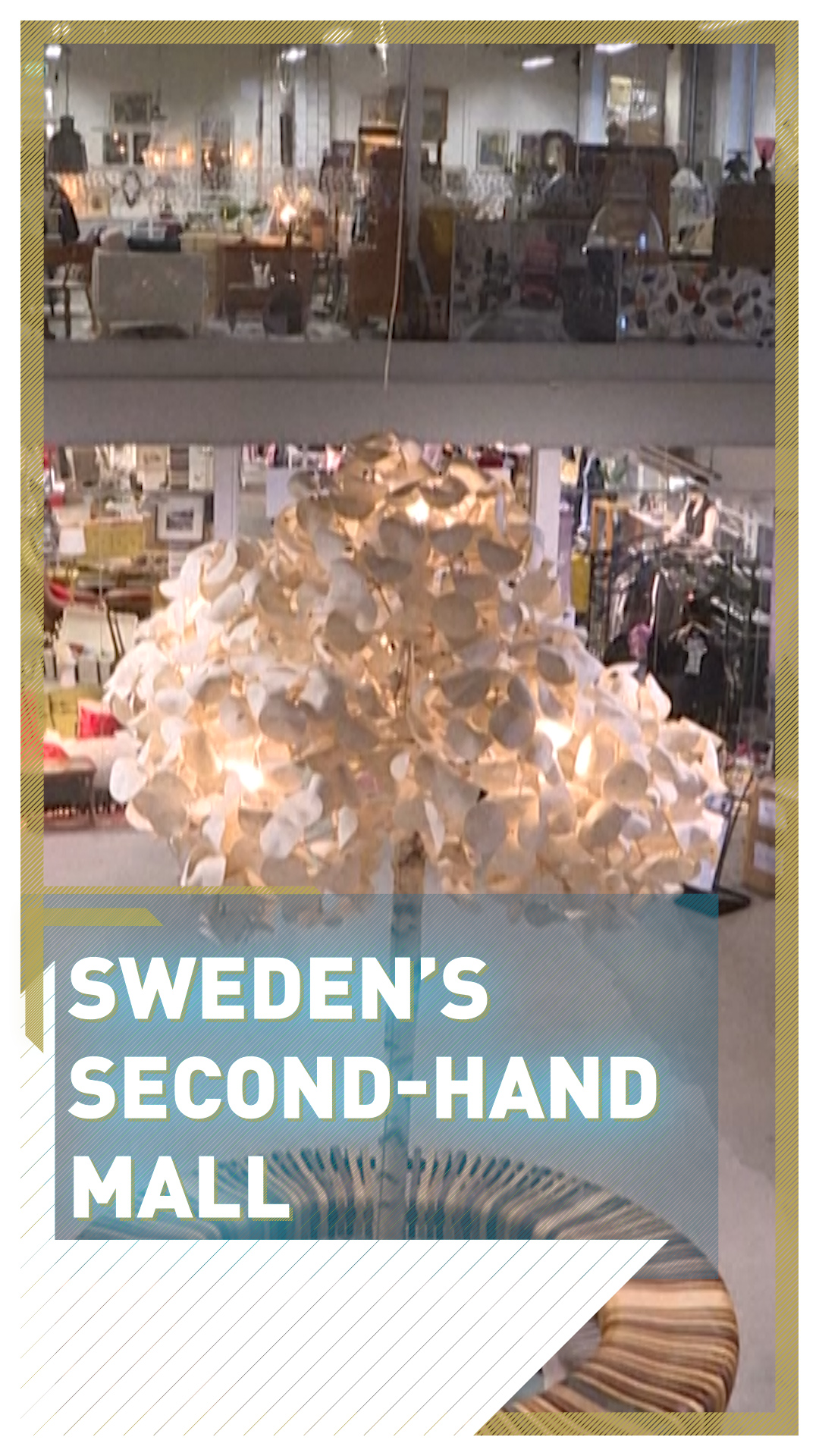01:24

The Swedish city of Eskilstuna is home to the world's first second-hand mall.
Playing on the city's name, ReTuna consists of 13 stores and covers 5,000 square meters, employing between 50 and 65 people. Eskilstuna, 100 kilometers west of Swedish capital Stockholm and home to 100,000 people, began efforts to rebrand itself as an ecological city in the 1990s.
"We are traditionally an industrial town – we've had our difficulties," said the city's mayor Jimmy Jansson. "We thought 'We have to find some things that can build confidence and where we can take responsibility.'"
He added that city leaders were now trying to develop it "into a modern industrial town."

ReTuna is the first secondhand mall in the world. /AFP
ReTuna is the first secondhand mall in the world. /AFP
ReTuna was inaugurated in 2015. Named by Guinness World Records as "the world's first shopping mall designated for repaired, recycled and restored items," it draws 250,000 to 300,000 shoppers through its doors every year according to Anna Bergstrom, who was in charge of ReTuna until early 2020.
"You can basically do all kinds of shopping here that you do in regular stores," says Bergstrom of the two-storey center. "Furniture, clothes, flowers, sports articles, building materials... almost everything."

ReTuna is designed like a regular mall but all of the items have had previous owners. /AFP
ReTuna is designed like a regular mall but all of the items have had previous owners. /AFP
One-year courses in the design of recycled products are also offered at the mall.
Buying second-hand has become increasingly popular in Sweden, where kopskam ("buying shame") and flygskam ("flight shame") are weighing more and more on the conscience of consumers.
The mall means that Sweden is one step closer to achieving its goal of becoming an ecological leader by 2045. By this point, the city of Eskilstuna also hopes to capture more CO2 than it emits, while being completely independent of fossil fuels.
The city has implemented a state-of-the-art waste-sorting center, which means it is already recycling and transforming the majority of waste into energy. However, as with everywhere else, there are gaps that need to be filled.
Buses in the city centre already run on biogas but "there is still a lot to be done to reduce carbon dioxide emissions" says Jansson, the city's social democratic mayor for the last 10 years.
Eskilstuna is home to Volvo's construction equipment division, as well as Finnish stainless steel giant Outokumpu.
The city adopted a "Climate Plan 2020" in 2012 to become greenhouse gas neutral by the end of the decade. In 2016, a new list of 50 environmental promises ranged from the development of renewable energies to bicycle paths.
The desire to be increasingly ecologically sound remains a political issue: the opposition Green party says that there are "a number of goals that have not been met." Wondering whether Eskilstuna can reach its climate goals, the city's leaders have redoubled their efforts – and the locals are doing their bit too, as ReTuna proves.

Hundreds of thousands of shoppers pass through the mall's doors every year. /AFP
Hundreds of thousands of shoppers pass through the mall's doors every year. /AFP
Video editor: David Bamford